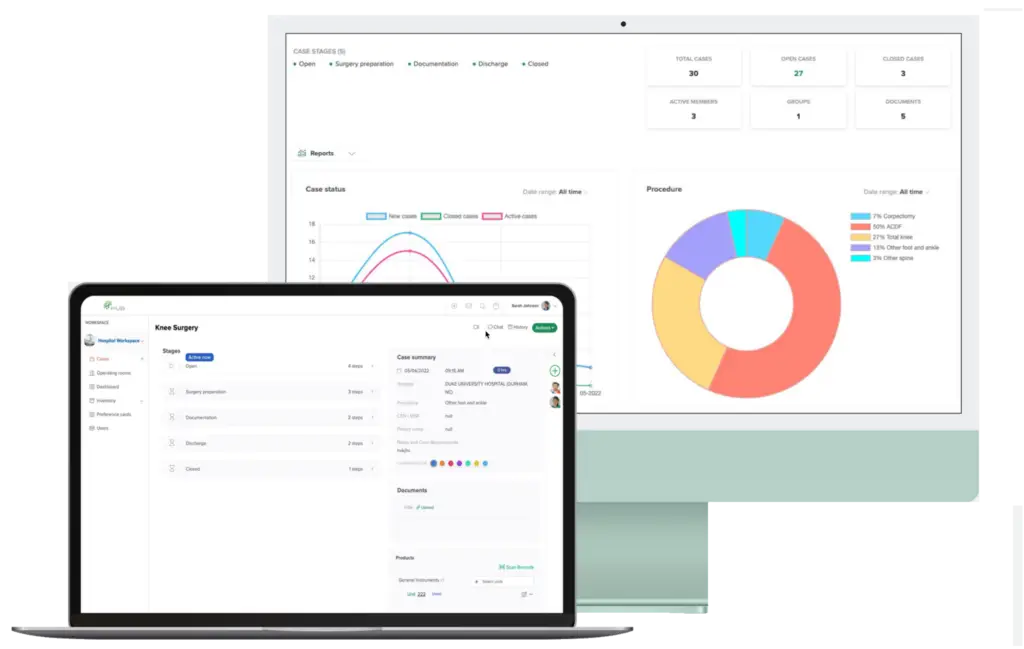Sales representatives are the lifeblood of any thriving business. They drive revenue generation and business growth. However, mastering inventory management is a common challenge many sales reps face, leading to missed sales opportunities and dissatisfied customers. As a manager or business owner, guiding your sales reps towards proficiency in inventory management is essential. In this article, we will delve into the steps you can take to train and support your sales reps in this critical aspect of their job.
Inventory management goes beyond tracking what’s in stock. It involves understanding the dynamics of your business, predicting customer demand, and ensuring that the right products are available at the right time. By helping your sales reps become inventory management pros, you’re not just improving their individual performance but also strengthening your entire business.
Understanding the Importance of Inventory Management for Sales Reps
Before we explore the steps to help your sales reps excel in inventory management, it’s crucial to understand why this skill is vital for their success. Inventory management involves overseeing and controlling the flow of goods into and out of a company’s inventory. For sales reps, this means keeping track of the products they sell and ensuring sufficient stock to meet customer demand.
Effective inventory management is essential for several reasons:
- Meeting Customer Demand: Sales reps must have enough stock to fulfill customer orders, preventing lost sales and unhappy customers.
- Avoiding Stockouts: Stockouts occur when products are out of stock, leading to lost sales and damage to the company’s reputation.
- Maximizing Sales Opportunities: By tracking inventory, sales reps can identify high-demand products, boosting sales and revenue.
- Reducing Costs: Efficient inventory management helps avoid overstocking and product wastage, leading to higher profits.
Effective inventory management also helps build stronger customer relationships. By ensuring product availability, sales reps can increase customer satisfaction and loyalty, resulting in repeat business and positive word-of-mouth, further boosting sales and revenue.
Now that we understand the importance of inventory management for sales reps, let’s discuss the steps you can take to help your sales reps become pros at it.

Step 1: Provide Training and Resources
The first step in helping your sales reps become inventory management pros is to provide them with the necessary training and resources. Many sales reps may not have a background in inventory management, so it is crucial to educate them on the basics. This includes topics such as inventory tracking, stock management, and forecasting.
Training should be an ongoing process. As the business grows and changes, so do the inventory management needs. Regular training sessions can help sales reps stay updated with the latest techniques and strategies. These sessions can also provide a platform for sales reps to share their experiences and learn from each other.
You can provide training through workshops, online courses, or one-on-one sessions with an experienced inventory manager. It is also essential to provide your sales reps with necessary resources, such as inventory management software, to help them track and manage their inventory effectively. These tools can automate many tedious tasks associated with inventory management, freeing up sales reps to focus on selling.
Step 2: Set Clear Expectations and Goals
To ensure that your sales reps take inventory management seriously, set clear expectations and goals for them. This can include targets for inventory turnover, stock levels, and customer satisfaction. By setting clear expectations, your sales reps will understand the importance of inventory management and be motivated to meet these goals.
In addition to setting goals, providing regular feedback is crucial. This helps sales reps understand where they excel and where they need improvement. Regular feedback also helps sales reps feel valued and appreciated, boosting their motivation and performance.
Communicate these expectations regularly and provide feedback on their progress. This helps your sales reps stay on track and make necessary adjustments to their inventory management strategies. Remember, inventory management requires constant monitoring and adjustment to ensure optimal performance.
Step 3: Encourage Collaboration with Other Departments

Inventory management involves multiple departments, such as purchasing, logistics, and finance. Encouraging collaboration between these departments helps your sales reps gain a better understanding of the entire inventory management process.
For example, by working closely with the purchasing department, sales reps can gain insights into the ordering process and understand how their sales affect inventory levels. This collaboration can also help identify issues or inefficiencies in the inventory management process and find solutions together.
Collaboration fosters a sense of teamwork and unity within the company. When everyone works towards a common goal, it boosts morale and productivity. It can also lead to innovative solutions and strategies that improve the overall efficiency of the inventory management process.
Step 4: Implement a System for Tracking and Reporting
To help your sales reps become inventory management pros, have a system in place for tracking and reporting on inventory levels. This can include using inventory management software or creating a spreadsheet to track stock levels, sales, and customer orders.
A tracking system helps your sales reps stay organized and make data-driven decisions regarding managing their inventory. It also provides valuable insights into their performance and helps identify areas for improvement.
In addition to tracking inventory levels, the system should also track key performance indicators (KPIs) related to inventory management. These can include metrics like inventory turnover rate, stockout rate, and order accuracy. By tracking these KPIs, you can measure the effectiveness of your inventory management strategies and make necessary adjustments.

Step 5: Provide Ongoing Support and Training
Inventory management is an ongoing process. Providing your sales reps with ongoing support and training is essential. This includes regular check-ins to discuss their inventory management strategies and provide feedback. You can also provide additional training as needed to help them improve their skills and stay updated with the latest inventory management techniques.
Remember, inventory management is not a one-size-fits-all process. Each sales rep may have different needs and challenges when it comes to managing their inventory. By providing personalized support and training, you can help each sales rep develop the skills and strategies that work best for them.
Conclusion
Effective inventory management is crucial for the success of sales reps. By following these steps, you can help your sales reps become pros at managing their inventory, leading to increased sales, customer satisfaction, and cost savings for your company. Remember to provide training and resources, set clear expectations and goals, encourage collaboration, implement a tracking system, and provide ongoing support and training. With these strategies in place, your sales reps will become inventory management pros in no time.
Inventory management is not just a skill but a mindset. It requires a deep understanding of the business, the market, and the customer. By helping your sales reps develop this mindset, you’re not just improving their performance but also strengthening your entire business.
Do you have any additional tips for training sales reps in inventory management? Share your thoughts in the comments below!




